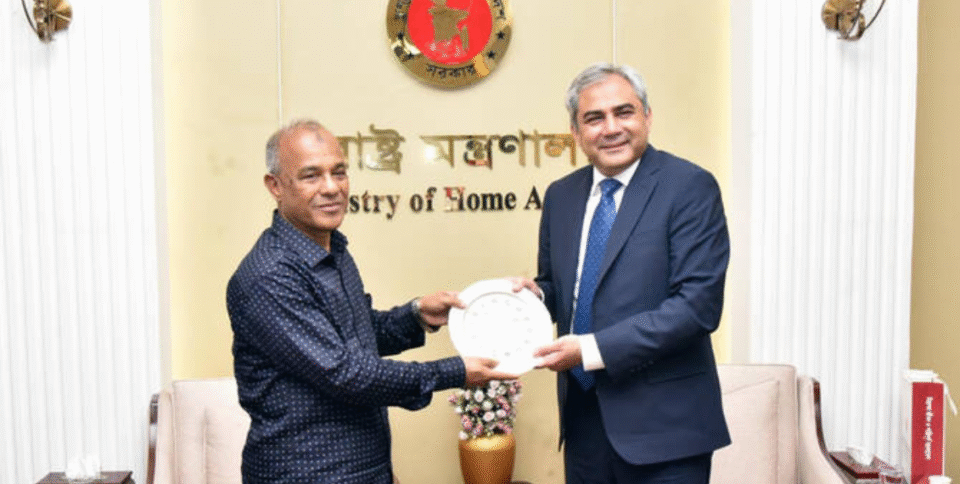NEW DELHI, July 25 – In a significant diplomatic development, Pakistan and Bangladesh have agreed to allow visa-free entry for holders of diplomatic and official passports, marking a thaw in relations long frozen since the 1971 Liberation War. The move is being watched closely by India, given its regional security implications.
The decision was announced on Wednesday following a high-level meeting in Dhaka between Pakistan’s Interior Minister Mohsin Naqvi and his Bangladeshi counterpart, Lt. Gen. (Retd) Jahangir Alam Chowdhury. The meeting resulted in a joint commitment to enhance cooperation in internal security, police training, anti-narcotics, and counter-terrorism efforts, according to state broadcaster Radio Pakistan.
Chowdhury termed the visit “extremely important” for strengthening bilateral ties, and expressed appreciation for Pakistan’s offer to train Bangladeshi police officials.
Resetting Relations Post-Hasina
Diplomatic observers note that relations between Islamabad and Dhaka have improved significantly since the interim government led by Nobel laureate Muhammad Yunus took charge in Bangladesh. Yunus, a critic of former PM Sheikh Hasina’s pro-India stance, is seen as more amenable to rebuilding ties with Pakistan.
Pakistan has now formed a joint committee, headed by Interior Secretary Khurram Agha, to deepen engagement with Dhaka. A Bangladeshi delegation is expected to visit Islamabad soon to inspect the Safe City Project and the National Police Academy.
India, however, views the development with unease. The visa-free access for Pakistani officials raises concerns in New Delhi about the potential infiltration of ISI agents and the resurgence of anti-India Islamist networks operating in Bangladesh and Northeast India.
According to Indian officials, there is a risk that extremist elements could exploit the relaxed movement between the two countries to fuel separatist movements, spread radical ideology, or coordinate attacks on Indian interests.

